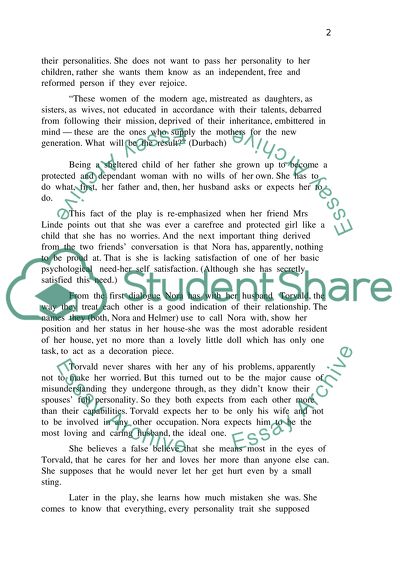Cite this document
(“A Dolls House: Noras Case Book Report/Review Example | Topics and Well Written Essays - 1500 words”, n.d.)
Retrieved from https://studentshare.org/literature/1567967-a-dolls-house-noras-case
Retrieved from https://studentshare.org/literature/1567967-a-dolls-house-noras-case
(A Dolls House: Noras Case Book Report/Review Example | Topics and Well Written Essays - 1500 Words)
https://studentshare.org/literature/1567967-a-dolls-house-noras-case.
https://studentshare.org/literature/1567967-a-dolls-house-noras-case.
“A Dolls House: Noras Case Book Report/Review Example | Topics and Well Written Essays - 1500 Words”, n.d. https://studentshare.org/literature/1567967-a-dolls-house-noras-case.


